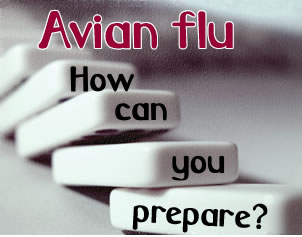 Washing your hands could save your life.
Washing your hands could save your life.
According to Jan Keuchel, infection control specialist at The Nebraska Medical Center, practicing good hygiene is the single most important thing you can do to protect yourself and others from infectious organisms such as influenza.
“Keeping your hands clean is one way to stay healthy and keep germs from spreading,” Keuchel said.
Stopping the spread of germs will be critical should a pandemic strike as some fear may happen if the current strain of avian influenza, H5N1, becomes transmissible from person to person.
|
|
When a family member is ill, only one person should be the designated care-giver. All household members should avoid sharing computers, pens, papers, clothes, towels, sheets, blankets, food or eating utensils. Keep everyone’s personal items separate. Be sure to disinfect doorknobs, switches, handles, toys and other surfaces. Wash hands after handling dirty laundry and be sure to use detergent and very hot water to wash clothes.
Always wash hands:
- Before preparing food;
- Before eating;
- After coughing or sneezing;
- After touching an animal;
- After using the bathroom or changing a diaper;
- After touching a sick person; and
- After touching contaminating objects.
To prevent the spread of infection:
- Cover coughs and sneezes with tissue, and throw tissue away after use. Block coughs and sneezes with upper sleeve if you don’t have tissue and wash hand each time after coughing, sneezing or blowing your nose.
- If soap water isn’t readily available to wash hands, use alcohol hand gel (60 to 95 percent) to supplement hand washing.
- Avoid touching eyes, nose and mouth to prevent germs from entering the body.
- Stay away from those who are sick as much as possible.
- Stay home from work and school if sick and contagious; keep distance from other people to protect them.
- Avoid co-workers, family members, friends, etc. suspected to be sick, by practicing social distancing (stay at least three feet away).
- Stay up to date on appropriate vaccinations, including a flu shot.
Watch UNMC Today for continued avian flu information, or visit the medical center’s Web site at www.unmc.edu/avianflu.